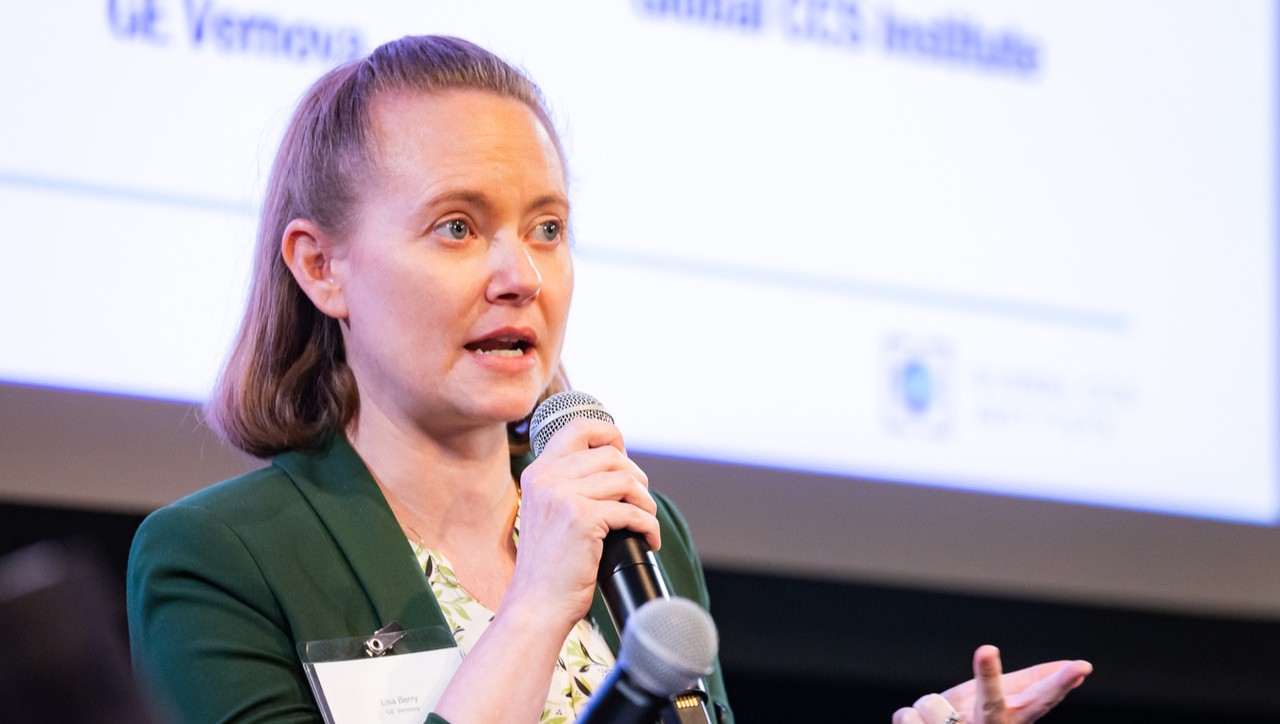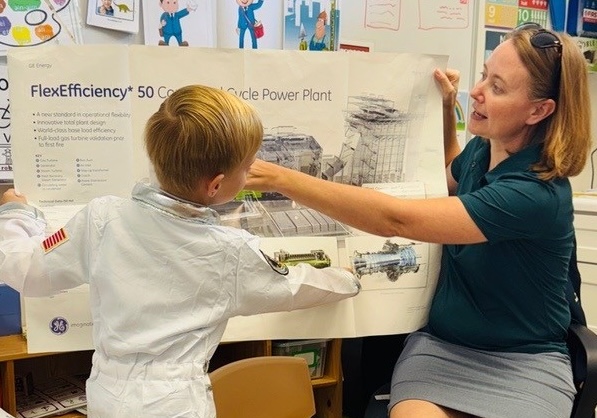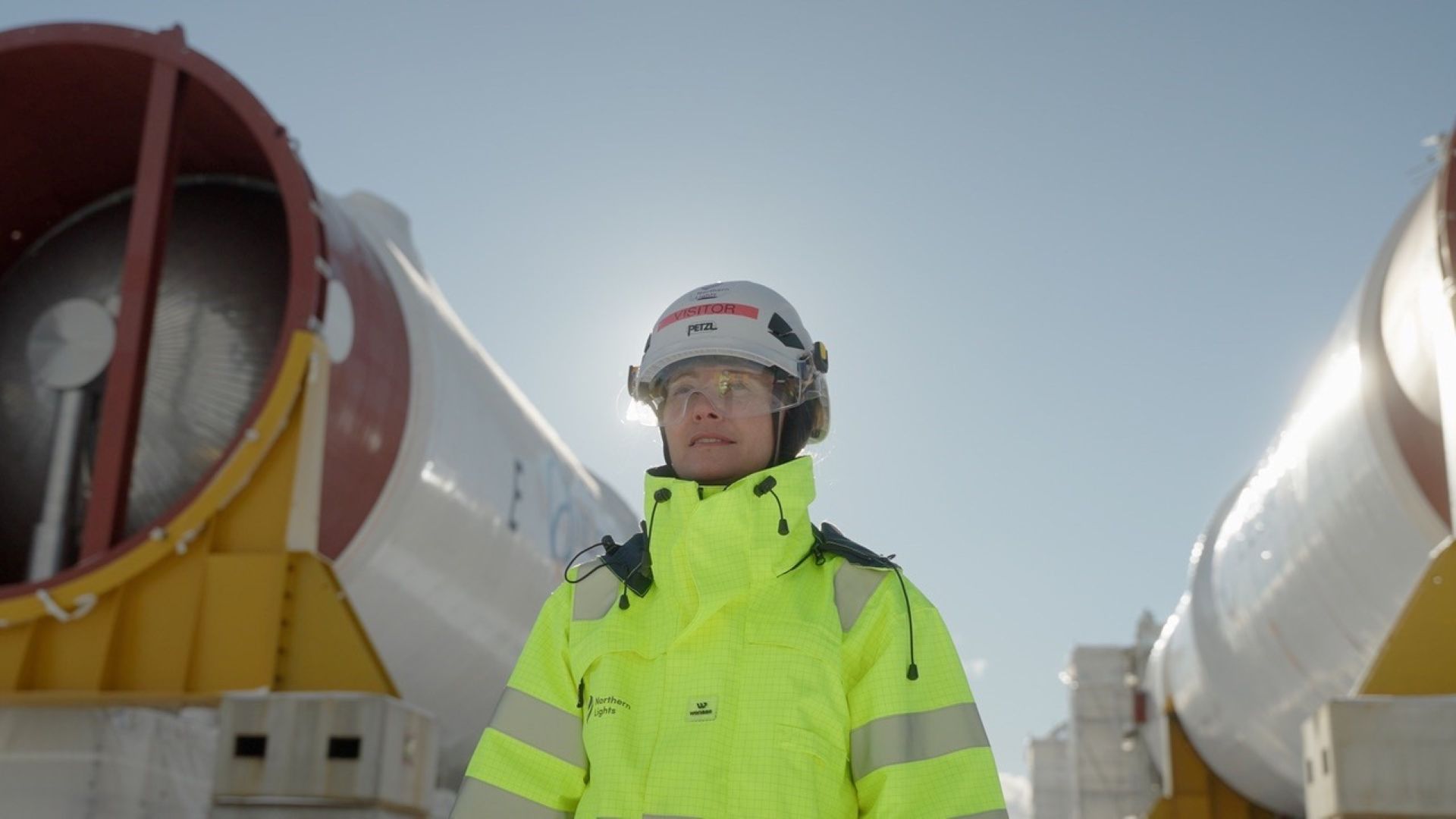Growing up near the shores of Lake Michigan in the 1990s, Lisa Berry didn’t harbor engineering ambitions. But everything changed when she joined her high school’s robotics group. “My brother had been a member, and it looked pretty cool,” remembers Berry, who is now GE Vernova’s decarbonization and data center technology director for the Americas. One of the coolest things was the chance to learn from one of the program’s founders, Natalie Lowell, a local manufacturing engineer who mentored the budding roboticists.
Lowell left an impression on Berry. “She was this very dynamic female engineer, outgoing and gregarious,” says Berry. “She completely changed my understanding of what an engineer could be.” Lowell’s energy and expertise were infectious, whether she was giving pep talks on project management or encouraging the team to “sell their robot” at competitions. It was a multidisciplinary master class, and the teenaged Berry loved it. “Something just clicked,” she recalls. Berry went on to study mechanical engineering at Purdue University. In her freshman year, Lowell invited Berry back to Michigan to address 2,500 educators about her old high school’s acclaimed robotics program.

Now Berry is taking the same versatile, vivacious, and visionary attitude to the challenge of reducing carbon emissions in the power generation industry with hydrogen-ready gas turbines and carbon capture–capable combined cycle plants. GE Vernova has so far equipped more than 120 gas turbines around the world to run on a mix of natural gas with hydrogen and associated fuels, and is developing technologies that can burn concentrations of up to 100% hydrogen — this is where the company calls on Berry’s expertise in engaging customers to bring projects across the line.
“Half the picture of being an engineer is sitting behind a computer solving problems,” Berry says. “But there’s also the critical element of talking to people and pushing the industry forward,” she says.
It’s that combination that has earned her a place among this year’s prestigious Women in Hydrogen 50, a list of 50 women industry leaders who have been nominated by their peers. Along with fellow GE Vernova hydrogen leader Kassy Hart, she was celebrated this week at the Women’s Global Leadership Conference in Energy (WGLC) in Houston.
Making Friends, Influencing People
Berry is a familiar face not just in the industry, but at the local kindergarten. When her son’s class asked for community helpers to share about their jobs, she talked on the importance of electricity generation and how the grid works. Her five-year-old son has taken to the stage with Mom, showing his classmates posters of combined-cycle power plants. “It might not all stick,” says Berry, “but it’s so important to build an awareness around our energy system.”

Whether addressing the meeting room, the conference hall, or the classroom, Berry understands the art of persuasion when it comes to hydrogen. She rehearses her arguments at home, starting with first principles. “I’ll talk to my kids and husband about how electricity gets created,” she says. “What can we do? How can we make that cleaner?” Her point: It’s entirely possible to swap out natural gas for hydrogen in the power sector with no loss in generation.
Berry is quick to acknowledge hydrogen’s early challenges, including how to store the highly flammable gas, its combustion instability, and infrastructure for both production and supply. But she always aims to leave her audience feeling optimistic about the possibilities. “Sure, we’ve had some hiccups, but the energy industry should be really excited by developments,” she says.
For Berry, that excitement goes beyond the personal. “I’m honored to be chosen [for the Women in Hydrogen 50] and have my team’s decarbonization efforts recognized,” she says. “What’s really cool is to share this with my kids and husband, who both see me go to work every day.” Like Lowell, her high school mentor, Berry is taking what she’s learned and paying it forward.
See more about Lisa Berry in the “Powering Tomorrow” docuseries.
